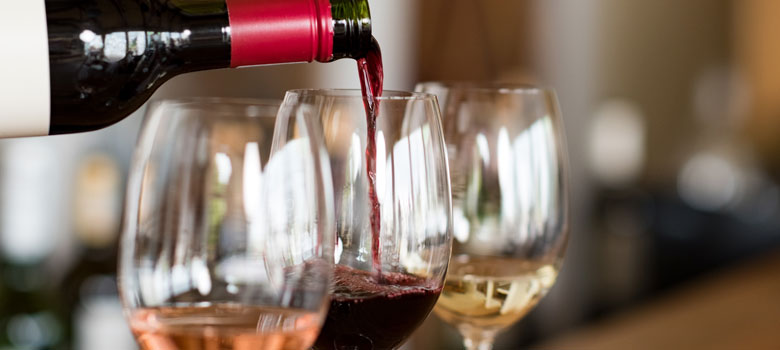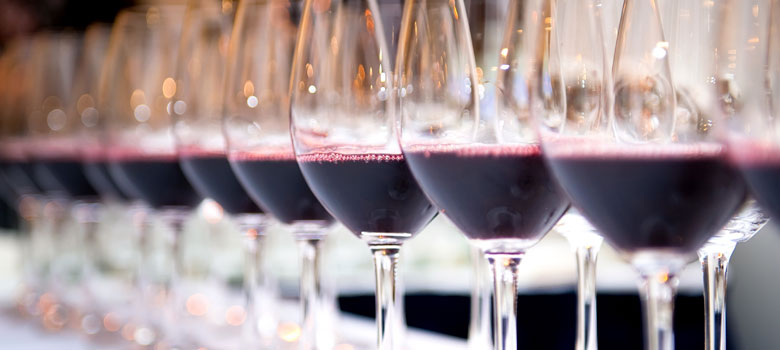
Wine
Best Sommelier of the World 2019
Very soon 65 of the world’s most talented sommeliers from 62 countries will compete in Antwerp, Belgium, as part of the 50th Best Sommelier of the World competition. As the excitement builds and the esteemed sommeliers finalise their competition preparations now is the perfect time to get to know the process behind this prestigious event.
The best make their way to Belgium

The Association des Sommeliers Internationale (ASI) was founded in Reims in 1969 with the first sommelier competition held that same year in Belgium. This year it is returning to Belgium for the event’s 50th anniversary. Now affectionately known as the ‘Olympic Games of Wine’ by industry experts, the competition has grown in both prestige and attendance. What was first created as a means of finessing sommelier skills, while sharing their expertise to a wider public, has also become a highly competitive, who’s who of the industry.
The exponential growth of the competition is a reflection of both the ASI’s dedication to providing an avenue for sommeliers to hone and fine-tune their skills, as well as a reflection of the world’s growing appreciation for perfectly matched flavour profiles, which are at the heart of this noble profession. Today the ASI has over 50,000 sommelier members with only the best-of-the-best getting to compete in this triennial event.
Global tastes, universal skills

Preparation to compete in this prestigious event can take years. Each sommelier needs to be constantly working to sharpen their knowledge, be it through tasting the myriad of wines and spirits available today, as well as getting out into the food and wine community to seek new vineyards and understand emerging flavour trends. Sommeliers also need to be across all changes to appellations or styles, be abreast of industry news, and visit as many new and established wineries and distilleries as they can – and while comprehensive preparation is paramount, it doesn’t assure you a spot in the competition.
Before sommeliers get to compete in this prestigious event, first they have to qualify. This is where ASI members in their respective countries, who work in a restaurant, wine bar, or in a food and wine business, must prove their skills by competing and winning the regional and national competitions, which have been organised according to the ASI rules. Only after they are the top sommelier in their country can they have a shot at the big title of the ‘World’s Best Sommelier’!
Service skills tested

When the 65 sommeliers compete in Belgium they will be faced with three tests over three days, including a written exam, as well as hands-on sections, requiring the sommeliers to serve wine to the judges, and pass a blind taste test. Each section of the competition requires sommeliers to show a fierce dedication to their profession and display unquestionable skills.
A comprehensive test covering the world of wine might seem quite the challenge to most, but for sommeliers it actually can be harder in the field. Being a modern sommelier is not only about wine. Sommeliers are expected to know about beers, spirits, sake, water, as well as coffee and tea. Yes, it truly is an Olympic feat to be a 21st Century sommelier.
This year’s participants will be traveling from all around the world to put their skills to the ultimate test, including Australia’s representative, Loic Avril, who is a French-born sommelier now living and working in Melbourne. Loic secured his position in this prestigious competition when he was part of the Dinner by Heston 2017 award-winning sommelier team crowned The Best Sommelier of Australia 2017 – and we will be on the edge of our seats over the next few days to see how he progresses through the competition.
Distinguishing a winner

While being part of this competition can kick-start international career opportunities and raise the profiles of the leading sommeliers that take part, all competitors are in Belgium to win. And to have a chance at winning, Australia’s Loic Avril, alongside 64 other hopefuls, will have to display the distinguishable qualities deemed essential to be worthy of the title.
The specific skills that will be put to the test throughout the three stages of the competition, beyond tasting skills, is the sommelier’s serving knowledge and abilities, including the ideal temperature of wines, when the wine is served during service, and the accuracy of the wine to what was ordered.
The sommelier must of course be an expert, but they must be an approachable expert that has a warm and welcoming demeanour. They must be diplomatic and understand their personal tastes may not be reflected by the tastes of the customer, or their customer’s budget for that matter. Sommeliers are also responsible for managing the business side of their wine lists, and as such brand knowledge, as well as buying, pricing and stock management skills are also required. The sommelier is often part of a larger service team, and so they must be able to share their knowledge and passion not only with customers, but with their staff as well – and so that is part of the skills to be tested too.
Worldly judges for a worldwide audience

A sommelier is truly a highly complex service role and as such the challenge to determine who is the best sommelier in the world will also be complex. An unbiased and expert technical committee with representatives from Europe, Asia, Africa and the Americas has been charged with this mammoth task. Each member of the judging panel are winners of national and international sommelier competitions, or presidents of associations that strive to promote sommelier roles and skills in their own countries.
While Australia is a long way from Belgium, Australian residents can enjoy the excitement of the upcoming event via a live stream online. Further information and competition results can be found at the ASI Best Sommelier of the World 2019 website.